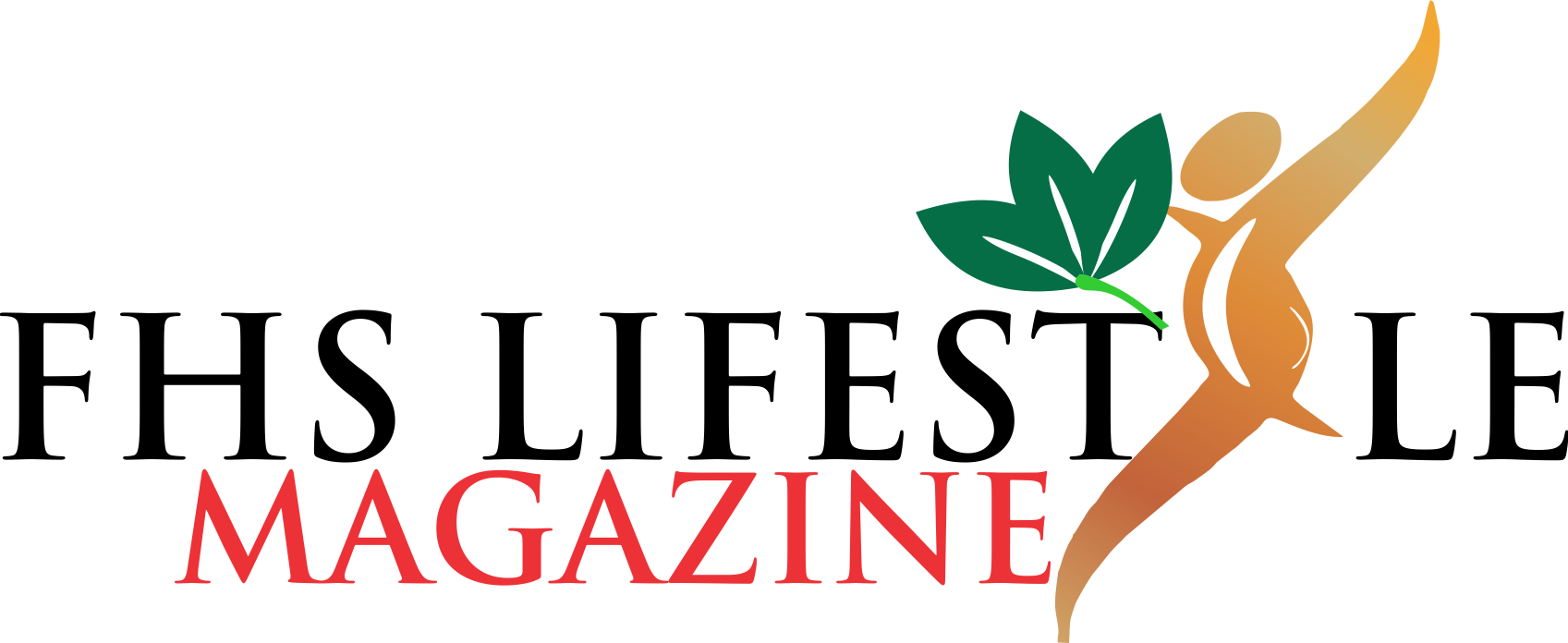Risks of Using AI in Herbalism
Like it or not, artificial intelligence (AI) is now interwoven into the basic technology we use daily. Like all technology, it’s only as helpful or harmful as the intentions of the people using it. Mostly, we hear about the dangers of using AI and how it can be used in nefarious ways, yet it also offers promising solutions to some of the world’s most complex problems. In this article, we’ll primarily explore the risks of using AI in herbalism, especially herbal education. The post Risks of Using AI in Herbalism appeared first on Chestnut School of Herbal Medicine.

Risks of Using AI in Herbalism
Written by Juliet Blankespoor
Art by Astra Intergalactica

An AI-generated image of a robot in an herbal apothecary.
Like it or not, artificial intelligence (AI) is now interwoven into the basic technology we use daily. Like all technology, it’s only as helpful or harmful as the intentions of the people using it. Mostly, we hear about the dangers of using AI and how it can be used in nefarious ways, yet it also offers promising solutions to some of the world’s most complex problems. In this article, we’ll primarily explore the risks of using AI in herbalism, especially herbal education.
As a seasoned herbalist and longtime plant enthusiast, I’m concerned about how machine learning will affect herbal medicine’s ancient and nuanced practice. The richly woven world of herbalism challenges this electronic emissary in unique ways. So, let’s explore why AI may not be the ideal guide for blossoming herbalists and why traditional learning grounds, like the Chestnut School of Herbal Medicine, continue to be vibrant havens of wisdom.
I’m certainly no authority on artificial intelligence, but I’ll use my research and outlook as an expert herbal author and instructor throughout this article. And as a reformed technophobe–who lived off the grid in my twenties with no running water, electricity, or a phone, let alone a computer–who now owns a technology-based business, I have a unique perspective.
Here, we’ll explore how AI platforms might complement formal herbal education and research and how artificial intelligence can support small herbal businesses. I’ll share what to look out for when learning about herbalism and my tips for finding trusted herbal teachers, authors, and schools. Finally, I’ll share my favorite herbal resources so you know where to find dependable information.
There is an inextricable link between learning herbal medicine from AI and unreliable Internet sources: both can be inaccurate, untrustworthy, and fragmented.
When applied to search engines, artificial intelligence looks for expert sources to find the most accurate information. Unfortunately, most of the highest-ranking sites covering a specific health condition or herb are not written by experienced herbalists. And AI can take liberties in populating information. In its current iteration, artificial intelligence sometimes fills in the gaps with falsehoods.
I put this to the test, asking a popular emergent AI to write my bio, and it inserted fallacies sandwiched between accuracies: it gave the wrong title of my book and misreported my herbal education. Disconcertingly, the human mind is befuddled about reliability when truths are intermingled with falsehoods. And our nation’s educational system isn’t renowned for teaching critical thinking and how to fact-check from non-biased sources. We already know how easily swayed humans are to misinformation, especially when falsehoods are sprinkled with veracity.
We tried the same experiment with another herbalist author, and the AI supplied inaccuracies about her history and current employment. I know an AI doesn’t have a genuine personality, but I couldn’t help feeling like it was eerily confident while delivering cavalier falsehoods. Artificial intelligence can be trained to have a persona, or “voice,” which can make them feel all the more human and make actual humans more vulnerable to manipulation.

An AI-generated image of Juliet Blankespoor, founder of Chestnut School of Herbal Medicine.
Popular medical or gardening sites are often the first places AI will pull its herbal information from. The authors of these articles are typically not experts in herbal medicine, let alone herbal aficionados. Instead, they rely on cursory research from other non-experts and search engine optimization expertise (which brings their article to the number one spot). Compounding the issue, AI may pull from many sources, resulting in a smorgasbord of details with apparent holes in knowledge and even inconsistencies.
Now that we’ve established the risks of using AI in herbalism due to populating data from unreliable sources, let’s discuss how this relates to online research in general. Suppose you’re conducting herbal research using the highest-ranking results from search engines (which have already used AI in their algorithms for years and will continue to rely on it more in the future). In that case, you’ll find spotty information that lacks vital details, such as the proper plant part used, the most effective preparations, and safety considerations. Machine learning will also miss the most common confusions and questions the general public will have. For all these reasons, it’s crucial you seek herbal information from trusted sources.

An AI-generated image of a computer chip intertwined with herbs.
The drawbacks of relying on AI to learn herbalism include a need for more safety information and personalized guidance.
Artificial intelligence collects data, analyzes patterns, and provides information based on these patterns. However, when it comes to herbalism, the nuances and complexities of the field can often be lost in translation. Take, for instance, the herb elderberry (Sambucus nigra var. canadensis). While machine learning could correctly tell you that elderberry has antiviral properties, it might fail to warn you that the raw seeds contain cyanogenic glycosides, which can cause digestive distress if not correctly prepared.
Preparing a potent calendula (Calendula officinalis) oil or tincture, for instance, requires an understanding of not only its properties but also how to extract its medicinal benefits efficiently. An AI might suggest using only the petals, neglecting the flower heads’ green bases (involucres), where most of its anti-inflammatory and antimicrobial resins reside. It could also fail to mention that calendula is unsafe in pregnancy due to its stimulating effect on the uterus. This is because artificial intelligence pulls its data from the highest-ranking site, which almost always does not come from an herbalist. Try searching for “calendula’s medicinal properties” and clicking on the top result: you’ll likely land on a popular hospital system or basic popular medical information site. These articles are written with SEO in mind and are typically not written by experts in the field.

An AI-generated image of comfrey tea shows some inaccuracies.
Here’s another example: an AI might suggest using comfrey (Symphtum officinale) tea internally for wounds, not indicating that internal consumption of comfrey can be toxic to the liver due to the presence of pyrrolizidine alkaloids. Likewise, artificial intelligence might suggest using St. John’s Wort (Hypericum perforatum) for depression without explaining that it can interact dangerously with many prescribed drugs, including hormonal birth control and many psychiatric medications.
Herbalism is not merely a catalog of plants and their effects. It demands a deep understanding of different herbs and how to utilize them effectively and safely. It also includes the nuances of humans’ constitutions and how an individual herb might affect an individual based on whether their body runs hot or cold, warm or dry. Experienced herbalists also know where to find the most up-to-date information on drug-herb interactions. This level of comprehension and wisdom is born from years of hands-on experience and learning, something an AI can’t replicate.
Watch out for the potential pitfalls of AI and manipulative herbal education tactics.
I recommend avoiding sites that don’t include sources or citations when discussing scientific information. Also, steer clear of sites (or AI responses) that are absolutist (present perspectives in a black-and-white, oversimplified manner) or overly sensationalist. Herbalists who blame all of an individual’s disease or ill health on one’s thinking or one’s diet are often not considering the complete picture: genetics, epigenetics, environmental pollution, mental disorders, systemic marginalization, limited access to essential resources, or the simple fact that bodies are fallible and mortal.
This isn’t to say that the mind and diet don’t affect health. Instead, I caution you to avoid herbalists and natural health experts who don’t consider the full scope of factors affecting health and wellbeing.
Another red flag: authors who frequently present themselves as the sole “owner” of information on specific remedies. These charismatic natural health “experts” align themselves with their followers by sharing unique and “secret” information. They present themselves as benevolent and generous imparters of previously unrevealed remedies or “cures” despite the alleged threat to their platform from authoritarian government agencies or the censoring medical establishment. (I’m not saying censorship or greed-based policies aren’t real, but if it’s always happening, and the “expert” is the humble superhero saving you from medical authoritarianism, it’s a classic cult-leader manipulative tactic, which is sadly present in the natural health community.)

An AI-generated image of an elephant in a field of lavender includes purple ears.
Machine learning is only as reliable as the humans supplying and using the information.
Now that we’ve established the risks of using AI in herbalism, let’s look at how you can find reliable herbal medicine information on the Internet.
First, here’s the type of information a reliable herbal source will include:
- The scientific name of an herb
- The plant part(s) used
- If an herb is rare or endangered
- Dosage and preparation (including the best preparations for specific constituents in a given herb)
- How long a person can safely consume an herb (examples include: every day, only for two weeks, only take as needed)
- Safety information such as possible side effects, drug-herb interactions, and which types of people should avoid a particular herb (such as pregnant people, young children, people with diabetes, etc.)
- If it’s a wild-gathered herb, it will include identifying features and possible look-alikes
- Sources and citations

An AI-generated image of ginseng growing near a stream displays an odd root structure.
Here are some of my favorite sites and organizations for reliable herbal information:
- Blog Castanea
Our very own blog! Chestnut School of Herbal Medicine’s blog is written primarily by Juliet Blankespoor and Meghan Gemma, along with a lovely smattering of trusted guest herbalists. You’ll find beautiful and engaging materia medica, herbal recipes, and lists of our favorite herbal medicine resources, all written with our signature silliness and botanical obsession. - Aviva Romm, MD
Dr. Aviva Romm—an MD, herbalist, and midwife—is a legendary herbalist and is widely considered one of our nation’s top experts on holistic medicine. Her work focuses on hormonal health, women’s health, childbirth, stress, supplements, and sexuality. If you’re looking for a trusted source that marries Western medicine, social justice, intersectional feminism, and holistic health, look no further! - Tieraona Low Dog’s Blog
Dr. Tieraona Low Dog is an award-winning author, integrative medicine physician, and Indigenous herbalist who teaches and writes about traditional healing, earth connection, herbal medicine, supplements, and medicine making. - Herbs with Rosalee
One of the best blogs for beginning herbalists, Rosalee de la Forêt writes about herbs in an approachable manner. You’ll find an extensive library of trusted articles about herbs, recipes, and podcasts featuring detailed explorations of one herb. - Kitchen Curandera
Felicia Cocotzin Ruiz is an inspiring kitchen curandera, Indigenous foods activist, and natural foods chef. Her blog features basketfuls of delectable herbal and wild foods recipes. Don’t miss her *gorgeous* book, Earth Medicines: Ancestral Wisdom, Healing Recipes, and Ancestral Wisdom from a Curandera. - Mountain Rose Herbs Blog
This treasured herbal supplier also has a fantastic blog—featuring plentiful body care, beverage, and other herbal recipes. Their catalog doubles as an herbal publication with delightful articles, and they even have a podcast, Herbal Radio. - American Botanical Council
If you’re looking for a scientific and detailed approach to herbal medicine, ABC is a longtime trusted source with searchable databases. The council publishes the quarterly Herbal Gram, focusing on medical herbalism and the herbal industry. - American Herbalists Guild
The AHG is the leading professional association for herbal practitioners in the United States. Membership includes a journal written by diverse herbal experts and engaging recorded lectures on herbal medicine topics.
The Chestnut School of Herbal Medicine’s curated lists of trusted herbal resources (personally vetted herbal books, podcasts, organizations, and publications):
- Chestnut School’s Herbal Resources: Blogs, Conferences, Organizations, and Publications
- Chestnut School’s Curated Lists of Best Herbalism Books
- How to Start Your Herbal Career: The Ultimate Guide for Budding Herbalists

An AI-generated image of mushrooms growing in a forest.
The benefits of structured learning with experienced and trusted herbalists remain the best way to learn herbal medicine.
Herbalism is more than just a list of plants and their properties—it’s a dance with nature. This intimate tango is born of years of patient practice and tangible touch, a duet that AI can’t quite master.
If your passion for plant medicine runs deep, I highly recommend finding an herbal instructor, either in-person or online. Despite its advanced algorithmic learning, AI can’t replace the invaluable mentorship traditional herbalism schools provide. For example, the Chestnut School of Herbal Medicine offers a comprehensive approach to learning. We not only teach the science behind herbs but also their traditional uses, safety precautions, and the best preparation methods. This holistic approach helps students grasp the why and how of herbal medicine, not just the what.
Our instructors come from diverse backgrounds, offering a well-rounded perspective that includes traditions from around the globe. Our approach to herbal medicine is bioregional: we encourage cultivating your own medicine and relying on the abundant (often invasive) healing herbs growing right outside your door.
You’ll also receive expert feedback on your coursework, ensuring that you grasp complex subjects like botany and herbal therapeutics. Our staff is available every day of the week to answer medicine-making, gardening, or foraging questions. This invaluable guidance cannot be provided through machine learning or artificial intelligence. Of course, we are not the only herbalism school, and others may be a better fit due to your professional goals, finances, location, or wanting an in-person instructor.
We have created the most comprehensive list of herbal schools for this very reason. Picking the right school can be daunting, so we created a guide to help you get an herbal education.

An AI-generated botanical illustration of chestnut features many inaccuracies.
Real-life herbalists vastly outperform artificial intelligence as a source of herbal instruction.
One of the benefits of formally studying herbal medicine is a well-thought-out curriculum that leads you through the journey from novice to expert. An excellent teacher will start with basic concepts and core skills and build upon that foundational knowledge deliberately.
Established herbal programs offer feedback along with ways to help you refine and integrate learning. For example, at the Chestnut School, we provide review questions at the end of each module. After successfully reviewing the material, you move on to a quiz and experiential projects to infuse the learning deep into your body and mind. Educational courses that are intentionally designed ensure your education is thorough so you can safely use herbs at home or embark on an herbal profession, depending on your goals.
Artificial intelligence can complement this learning type but cannot replace it. It falls short without the nuances of offering tailored feedback and a thorough curriculum. Here are a few examples of how personal instruction aided our students’ journey as burgeoning herbalists:
“The education and guidance I received from the Chestnut School of Herbal Medicine gave me the confidence to start my own practice making tea blends, tinctures, and other products. I feel empowered to offer my clients advice to improve their health naturally.” ~ Rita L.
“I have always been intimidated by experimenting in the kitchen, but after finding the Hibiscus Ice Cubes so easy and a delight, it created a spark within to do more. I ended up making countless recipes, which created so much joy, confidence, and laughter within the home and helped with my overall mental well-being. As an individual who identifies as BIWoC, this past year and the events that occurred on 6 Jan have made it quite difficult to find peace and hope. These projects have been a lifesaver during this time, and I am so thankful for the unexpected joy that this has brought into my home.
I cannot wait to build upon my skills in your other courses and am beyond grateful for the Chestnut School of Herbal Medicine. This course has been a completely amazing and transformative experience. It has touched my life in a way that has been completely unexpected, and I have already been able to apply my knowledge thus far to help bring joy and wellness to those in the marginalized communities that I serve.” ~ Nicole D.

An AI-generated image of a robotic herbalist who appears forlorn and confused. This robot should enroll at Chestnut School of Herbal Medicine.
Despite its downsides, AI has valuable applications in herbal businesses, including search engine optimization (SEO) and copywriting.
For any small business, time is often in short supply. If you want your customers or clients to find you on the Internet, it’s imperative you pay attention to SEO, as it gives you a leg up with search engines. As part of your SEO strategy for herbalism, you’ll need to know what people are searching for and which words they use. You’ll then need to incorporate these terms into your website, social media, and blog. You can use AI for SEO.
In full disclosure, we used AI to help us create the outline for this article and find the key terms people would be searching for (I’d like folks to be able to find and read my articles!). We even used a few snippets of AI-generated writing as a jumping-off point. And, if you haven’t guessed yet, Astra Intergalactica—in tandem with Chestnut’s resident AI expert Amanda Lael Davis—created the AI-generated imagery adorning this blog.
In our grand ballroom of the digital age, finding harmony is vital. Let’s keep in mind that the soul of herbalism thrives on a more personal connection— with the plants, the Earth, and each other.
Meet The Green Mastermind Behind Blog Castanea

JULIET BLANKESPOOR is the founder, primary instructor, and Creative Director of the Chestnut School of Herbal Medicine, an online school serving thousands of students from around the globe. She's a professional plant-human matchmaker and bonafide plant geek, with a degree in botany and over 30 years of experience teaching and writing about herbalism, medicine making, and organic herb cultivation. Juliet’s lifelong captivation with medicinal weeds and herb gardening has birthed many botanical enterprises over the decades, including an herbal nursery and a farm-to-apothecary herbal products business.
These days, she channels her botanical obsession through her writing and photography in her online programs, on her personal blog Castanea, and in her new book, The Healing Garden: Cultivating and Handcrafting Herbal Remedies. Juliet and her family reside in a home overrun with houseplants and books in Asheville, North Carolina.
Interested in becoming a contributor?
© Chestnut School of Herbal Medicine and chestnutherbs.com, 2011-2024. Unauthorized use and/or duplication of this material without express and written permission from this site’s author and/or owner is strictly prohibited. Excerpts and links may be used, provided that full and clear credit is given to Chestnut School of Herbal Medicine and chestnutherbs.com with appropriate and specific direction to the original content.
Want to take a deeper dive into medicinal herbs and their uses?
Our 1,000-hour Herbal Immersion Program is the most comprehensive handcrafted online herbal course available, covering botany, foraging, herb cultivation, medicine making, and therapeutics.

The post Risks of Using AI in Herbalism appeared first on Chestnut School of Herbal Medicine.












